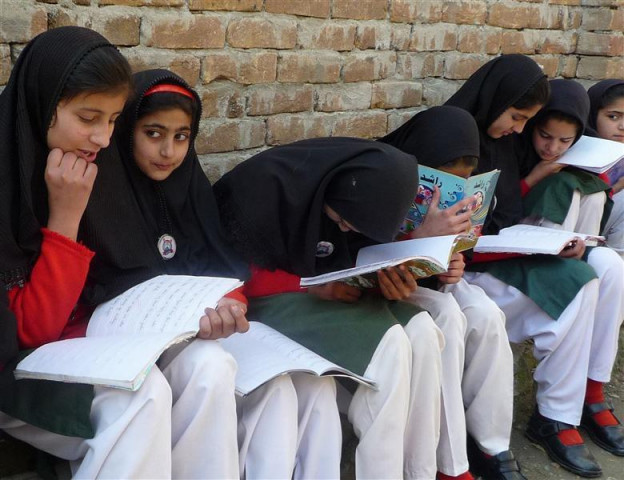Curriculum concerns: Minority communities demand representation in policy-making
Speakers at seminar say religious textbooks need serious revision for violent content.

The demand was made in a seminar organised by the Peace Education and Development (PEAD) Foundation on Friday, where subject specialists from minority groups reviewed textbooks for first to 10th grades.
“Religious textbooks need a serious revision for doing away with violent content,” said Haroon Sarabdiyal, chairman of the All-Pakistan Hindu Rights Movement.
He said that education is the key to success for any nation and the only way for it to overcome challenges. “Only an educated nation can survive in a fiercely competitive world. There are shortcomings and gaps in our curriculum that need to be improved. We appreciate PEAD for doing a job that is supposed to be the government’s,” he said.
He said that minority representatives, social groups and students should be taken on board in the syllabus review process.
Avagstin Jacob, from the Awami National Party, said that the total population of minorities, including Christian, Hindu and Sikh communities, in the province is around 0.3 million.
“To foster a peaceful society, it is essential that its children are brought up and educated in a way that promotes tolerance and peace, and discourages extremism and violence,” Jacob said.
He said that the government should eliminate all anti-religious lessons from the curriculum.
Charan Jeet Singh Sagar, a member of World Minority Parliament International, claimed that Urdu books of the Khyber-Pakhtunkhwa Textbook Board contain violent content including stories about wars and battles that glorify violence. He said that Islamiat is a compulsory subject in government schools, even though it is difficult to learn for students from other religious communities.
Sagar said that ethics classes in government schools were useless because there are no books or teachers to teach ethics to children.
PEAD Executive Director Samina Imtiaz said that some themes in textbooks have been over-emphasised and need thorough deliberation.













COMMENTS
Comments are moderated and generally will be posted if they are on-topic and not abusive.
For more information, please see our Comments FAQ